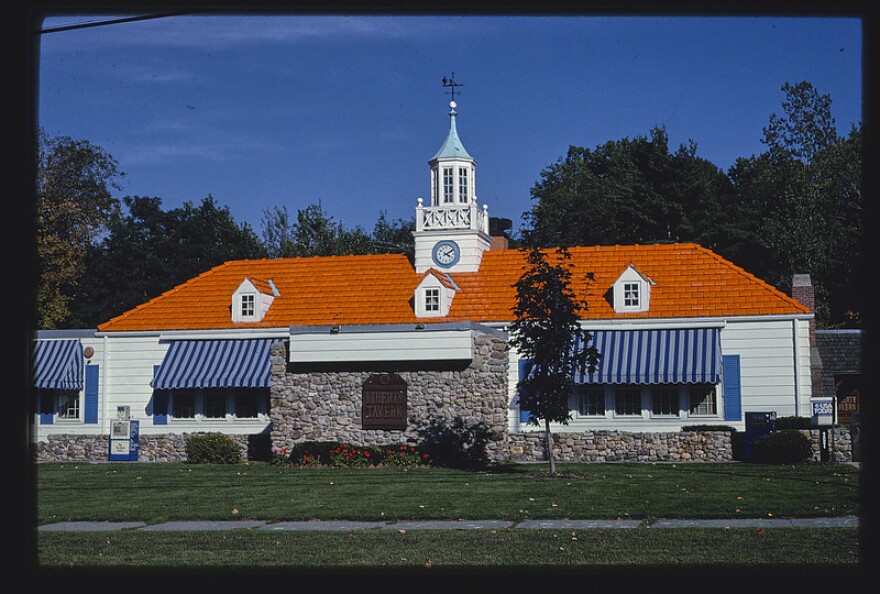Howard Johnson’s restaurants and motor lodges were an important part of my American education. The news that the last Howard Johnson’s restaurant, in Lake George, New York, had closed, took me completely by surprise. I thought they had all vanished long ago, along with my hair and the orange roofs that were such a welcome sign for the weary, hot and hungry traveler.
In 1966, fifty-six long years ago, I set out on a road trip that became a kind of Odyssey, driving more than forty-thousand miles through forty states, from north to south and coast to coast. This was my very first visit to the United States, a total immersion experience. I had no ambition to imitate Jack Kerouac whose beat generation novel On the Road had been a sensation ten years earlier. He crisscrossed America in Greyhound buses, or by hitchhiking, and slept on people’s floors. I had a very plain Chevrolet Impala with no graffiti, that Kerouac and his companions would have despised, and slept in motels. But it was an adventure enough for me.
New York on an August day, when the temperature was one hundred and two degrees, was not a good start. But as soon as I escaped into the vast hinterland my idealistic image of America snapped back into focus. The journey took a whole year and taught me three things. First, that the wide-open spaces are really wide open: you wouldn’t want to live there, and almost nobody does. Second, that most American cities have New York-style social problems without the compensating New York glamour. Third, that Howard Johnson's was a symbol of everything that made America great. Having twenty-eight flavors of ice cream was quintessentially American — always the same but full of variety, like the nation itself.
There were five hundred Howard Johnson’s spread across America, so I couldn’t stop at every orange roof. But they served real food, not fast food, and often had comfortable travel lodges too.
It seemed to me that HoJo’s, as everyone called it, was one of the things that bound the regions and cultures of America together. Everywhere the same color scheme, the same friendly welcome, the same extravagant ice cream flavors. Television was also the same everywhere with just three channels — NBC, CBS and ABC — all offering the same news and almost identical entertainment, as long as you could get the rabbit ears on top of the motel TV to work. There were no social media, but the postal service was superb and wired telephones worked much better and more reliably than cell phones. It felt like one united nation under Howard Johnson and Walter Cronkite.
I wasn’t so naïve that I failed to notice the escalating Vietnam War, or the Civil Rights and feminist movements, or the fact that the Pennsylvania plates on my car sometimes made me unwelcome in the south.
But where would we be without nostalgia, and carefully-edited memories? What I saw in that long road trip was the “Old America” that conservatives still dream about, and I’m glad I saw it. With hindsight it was far from perfect, and we wouldn’t want to go back to those times. But at the time, on the open road, guzzling gas without a qualm at thirty-five cents a gallon, and with twenty-eight ice cream flavors never far away, it was grand.
Copyright: David Bouchier


